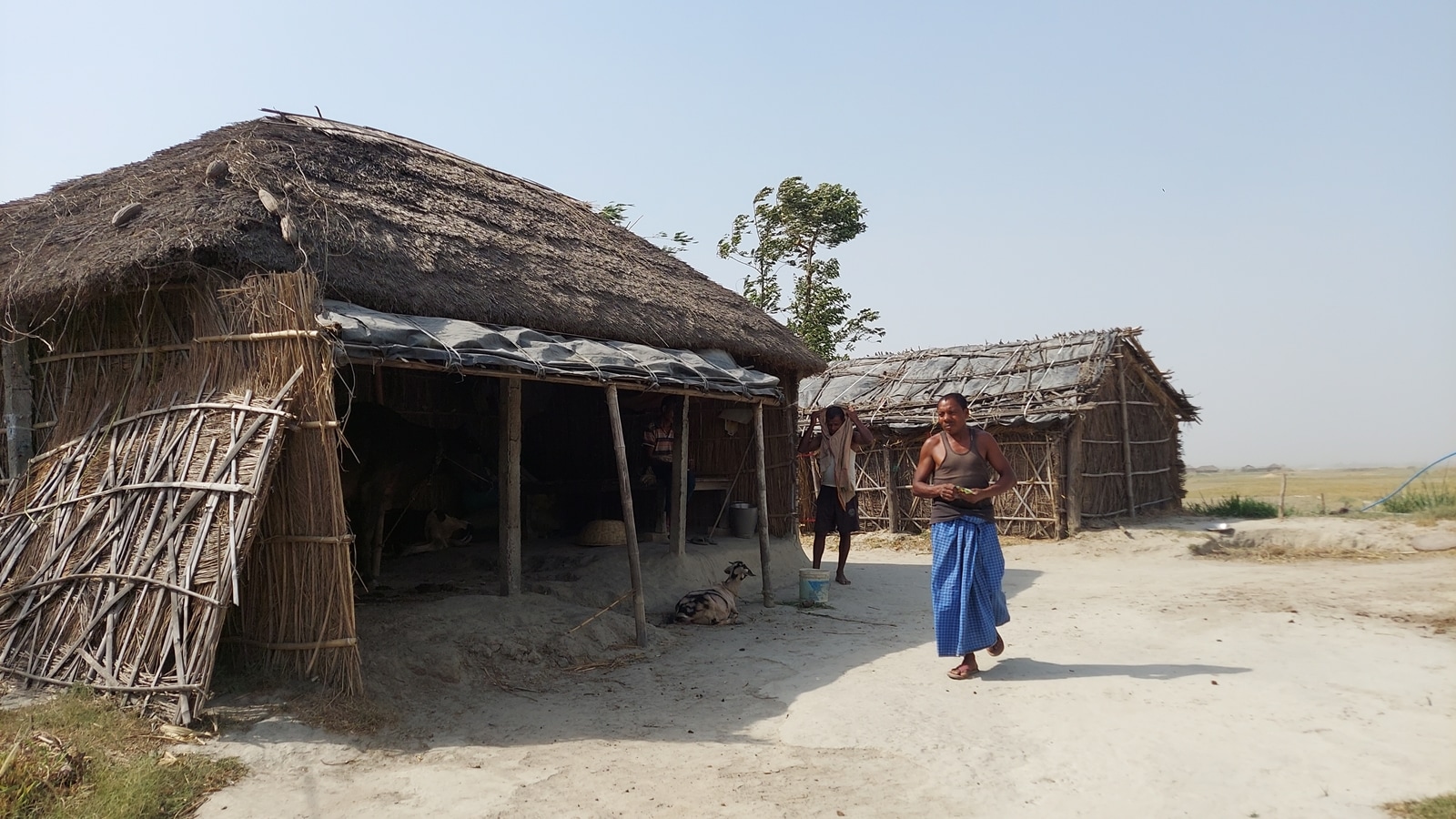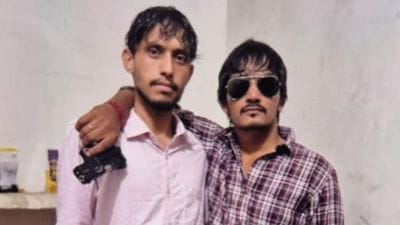Why this village of 300 households in Bihar refuses to vote
300-odd households in the village boycotted 2019 Lok Sabha and 2020 Bihar polls over lack of government initiative to mitigate their sorrows from Kosi river.
 A boat taking villagers to the mainland. (Express Photo)
A boat taking villagers to the mainland. (Express Photo)For the past two elections, residents of Khokhanaha village in Supaul’s Kosi region have not voted. The 300-odd households in the village strategically boycotted the 2019 Lok Sabha polls and the 2020 Bihar Assembly polls in anger against all political parties for their apathy towards their plight.
A few years ago, a rampaging Kosi River cut through the village, sweeping away many households and farms. A year ago, it also cut off the village, along with four others, from Supaul. These villages now exist on an island between two streams of the Kosi. Though the Supaul town is just five kilometres away on the map, it can take an entire day to make a visit to the town for even basic necessities.
“Our state is worse than nomads… they also stay in one place for a couple of years. We become homeless every year. After the government did not do anything to help us, we decided to boycott polls, but nothing happened even after that,” says Mukesh Kumar Yadav, 26, a resident of the village.
Supaul will go to polls on May 7 and decide the fate of incumbent MP from JDU, Dileshwar Kamait, and his challenger from RJD Chandrahas Chaupal.
 Khokhanaha village in Supaul’s Kosi region in Bihar. (Express Photo)
Khokhanaha village in Supaul’s Kosi region in Bihar. (Express Photo)
Residents of Khokhanaha and adjacent villages of Belagot, Begumganj, Panchagachhiya and Siswa complain that the government has not only been apathetic towards arranging proper compensation for loss of land and livelihood, but has also done nothing to rein in the river’s fury. The Kosi belt suffers floods every year with lakhs living in the region losing their crops, fields, houses and even land when the river changes course. To make matters worse, basic amenities such as electricity, primary healthcare and high schools are missing from these villages.
The women tend to be the worst sufferers. “It is very difficult to live here. When the floods hit, there is water till above our knees in the village. It is difficult to cook as I have no gas cylinder. We spread a tin sheet on a wooden plank and then place the chulha. Schools also remain closed for three months during the rains and it becomes difficult to manage children. Neta log bas vote maangne aate hain,” says Ramo Devi, 60, who belongs to the Kurmi cast.
Sushila Devi, 20, holding a newborn in her lap, says, “There are no doctors in the entire area. We have to carry children in this unforgiving heat and cross two streams, one after the other, on boats before we can reach the road that leads to Supaul. It takes the entire day as boats are not readily available and one has to walk several kilometres.”
Another farmer Radhanand Yadav narrates an incident where a family in the village was made to run from pillar to post to get a birth certificate because their child was born in the village and not in the Supaul hospital. “Can a woman even reach the hospital from here after she develops labour pain,” he asks.
Anita Devi, mother of a school goer in Khokhanaha, says, “The school that runs here is only till class five. There also, the teacher comes only occasionally. After class five, children have to cross the river to go to school.”
The result is that many children drop out of school. Frequent floods also mean that farming in the belt is unpredictable.
“Last year, I sowed paddy and standing crops were swept away by the river. I got no compensation. In any case, for three months, you can’t do any farming as everything gets submerged. That is why half the year, I work in Punjab as a farm labour,” says Shivkumar Rishidev, a Dalit in Khokhanaha, underlining the all-pervasive migration from the region.
Almost every home has a young man working outside the state as a daily wager.
The tough conditions in the area have also meant that men find it difficult to get brides from outside and parents of women have to pay higher dowry for grooms that are not from the belt.
Villagers claim that the area even gave two MLAs, Yaduvansh Yadav and Aniruddha Yadav, but they too did not bring any relief.
“Nobody has done anything for the Kosi region. Modiji har jagah pul banwa diye lekin yahan ke liye kuchh nahin kiya,” says Tribhuvan Kumar, 25, a Kurmi from Belagot village.
Bansidhar Yadav from Khokhanaha adds, “This time, too, we will take a call if we must boycott the polls again.”
Photos


- 01
- 02
- 03
- 04
- 05




























